In societies full of challenges, being an example to your community, showing with your every move how it can and should be better and different is an important phenomenon, as well as an obligation and a great responsibility. These nine young women, each in their own domain, are changing the world around them, and building a society for a better future. These are their stories.
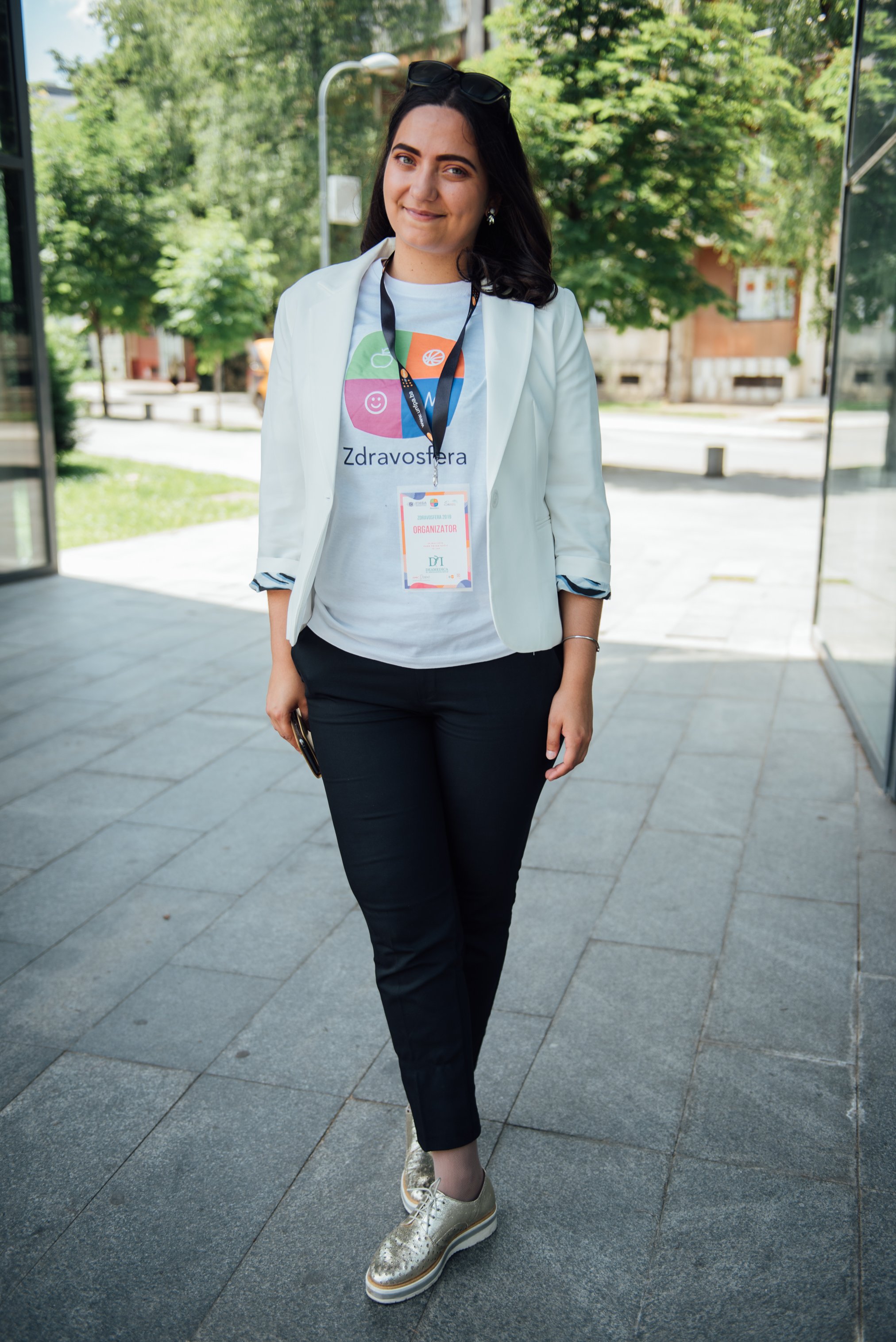
1. ANGELINA DULIĆ
Angelina Dulić is a fourth-year student at the Faculty of Medicine in Banja Luka and President of SaMSIC, a member of the International Federation of Medical Students' Associations (IFMSA) and is a representative of the Faculty of Medicine at the Student Parliament of the University of Banja Luka, where she is the Chair of the Scientific Research Commission, and a member of the University Senate. "SaMSIC and volunteering have allowed me to understand how much I can do, to express myself in ways that I have never before been able to, or have not had the opportunity to, to show myself and others that it doesn't matter what you want but how firmly you want it. Volunteering is synonymous with empathy for me... if I encouraged at least one person to think about themselves, their health, their habits, then I really have achieved a lot and I can proudly carry a smile on my face.”
Angelina's field of action is public health, but also sexual and reproductive health. "We try to be innovative and reach people in different, new ways, to educate them and raise awareness of the various public health problems in our country, because prevention really is the best medicine."
Angelina's goal is to drive young people to take initiative, to identify and point out the problems and solutions, to be well informed about their health, to combat stigma against different categories of society.
“When I look back in a few years, I want to see young people who have continued my work and the work of my colleagues and who turn dull days into colorful ones. In our country, it's a little more difficult when you're a woman or a girl, but it's not impossible.”
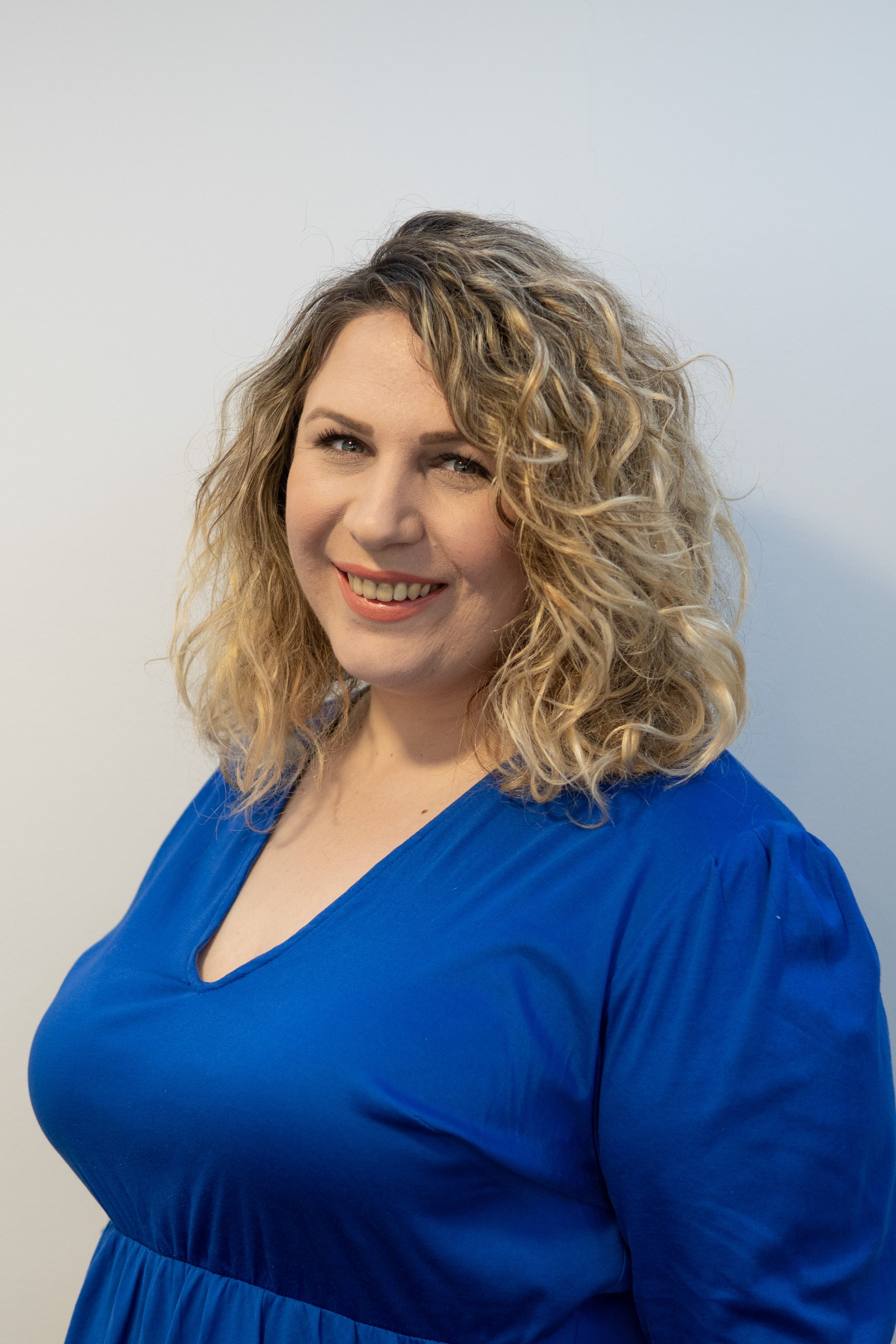
2. DANIELA MARIĆ
When Daniela Marić graduated from the Faculty of Law, she could not imagine that her life path would take her away from the judiciary and introduce her to the innovative and dynamic world of the IT industry. At SPARK/NSoft Group, where she currently works as a legal advisor, she works in her field of formal education, but also dedicates her time to her second love: participating in organizing various events and activities, as well as in human resources and finance tasks. "I am focused on legal counseling in all areas of law that a business is facing, but also start-ups," says Daniela, who is also a member of eight working groups / advisory boards that regulate professional practice in Bosnia and Herzegovina and connect students, employers and educational institutions.
Activism, for Daniela, is the effort we put into trying to be a better version of ourselves every day.
"Everything we choose to accomplish with our head, hands and feet to do good for ourselves and for the people in our area."
Daniela sees the girls and women of the future in Bosnia and Herzegovina as persistent in what they do and live, and wants them to be aware that daily learning is the only guarantee of success and reconciliation with themselves. “I want them to travel somewhere at least once in half a year or to experience life abroad. To be loyal to themselves.”
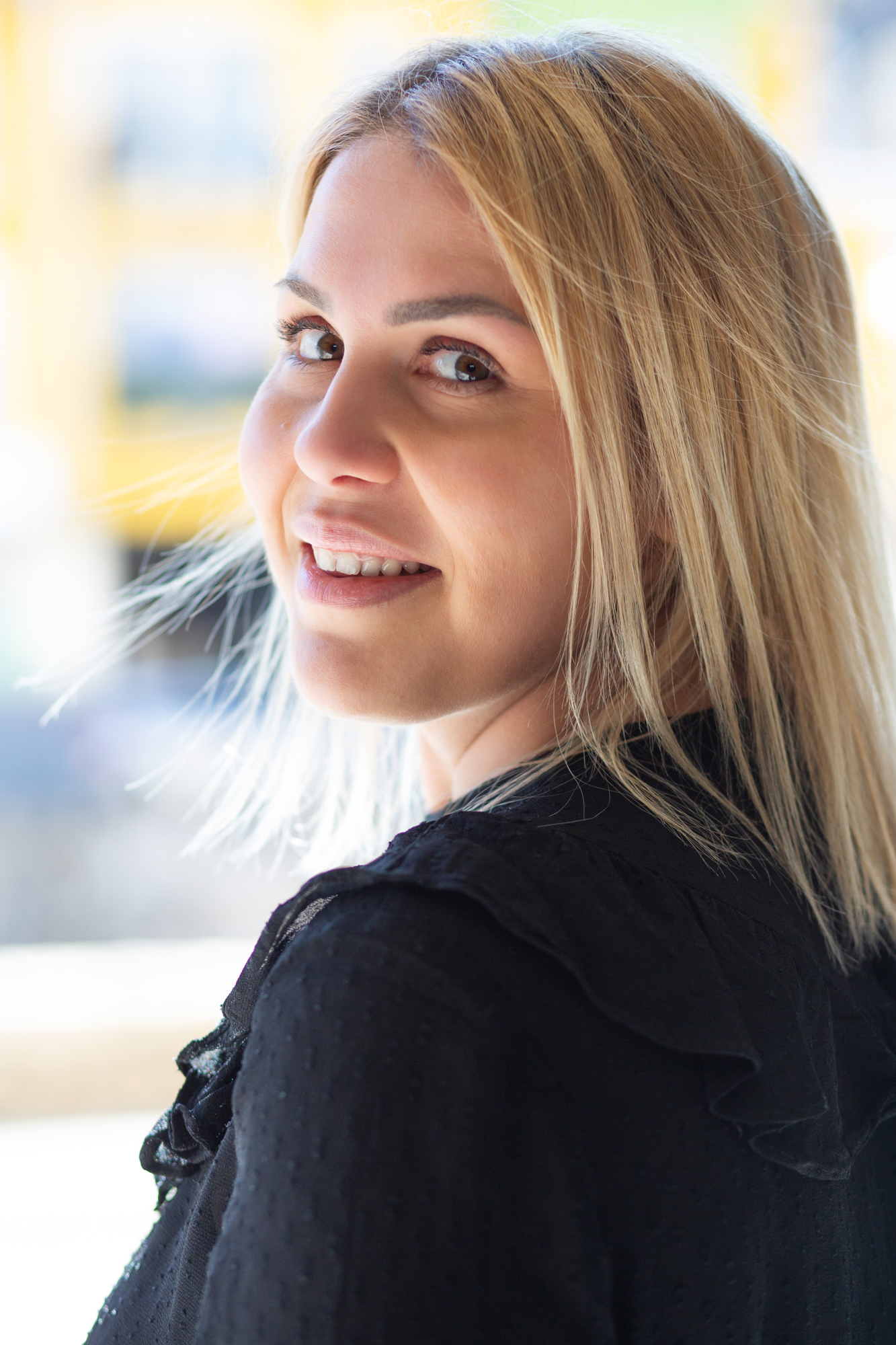
3. BERINA BUKVA
Berina Bukva (30), from Sarajevo, is currently working on her master's thesis at the Faculty of Law, and is head of the local RYCO office in Bosnia and Herzegovina. The Regional Office for Youth Cooperation (RYCO) is an independent intergovernmental mechanism set up by six Western Balkan governments: Albania, Bosnia and Herzegovina, Kosovo (UNSCR 1244), Montenegro, Macedonia and Serbia. RYCO aims to promote a spirit of reconciliation and cooperation between young people in the region through youth exchange programs. "RYCO is creating a space for young people in the Western Balkans where they can travel freely in the region, in order to understand each other as much as possible and finally become each other’s associates and friends, not 'them and those across the border'."
She started out in the NGO sector at the KULT Institute for Youth Development, where she gained valuable knowledge and skills in working with young people. Part of her professional work and activism is related to the Orange Day campaign - prevention of violence against women and girls, where she was part of the organizing team for Bosnia and Herzegovina. At the British Council, she was involved in social activism and peer education projects, and later became coordinator of the VESTA Resource Center, where she worked directly with civil society organizations in Bosnia and Herzegovina as well as in the region. Berina is also a trainer for human rights and gender equality with young people.
"Working directly with young people in the field motivates me to work on non-formal education, because through that, in a tangible way, I see changes in young men and women who can build a better community for all of us."
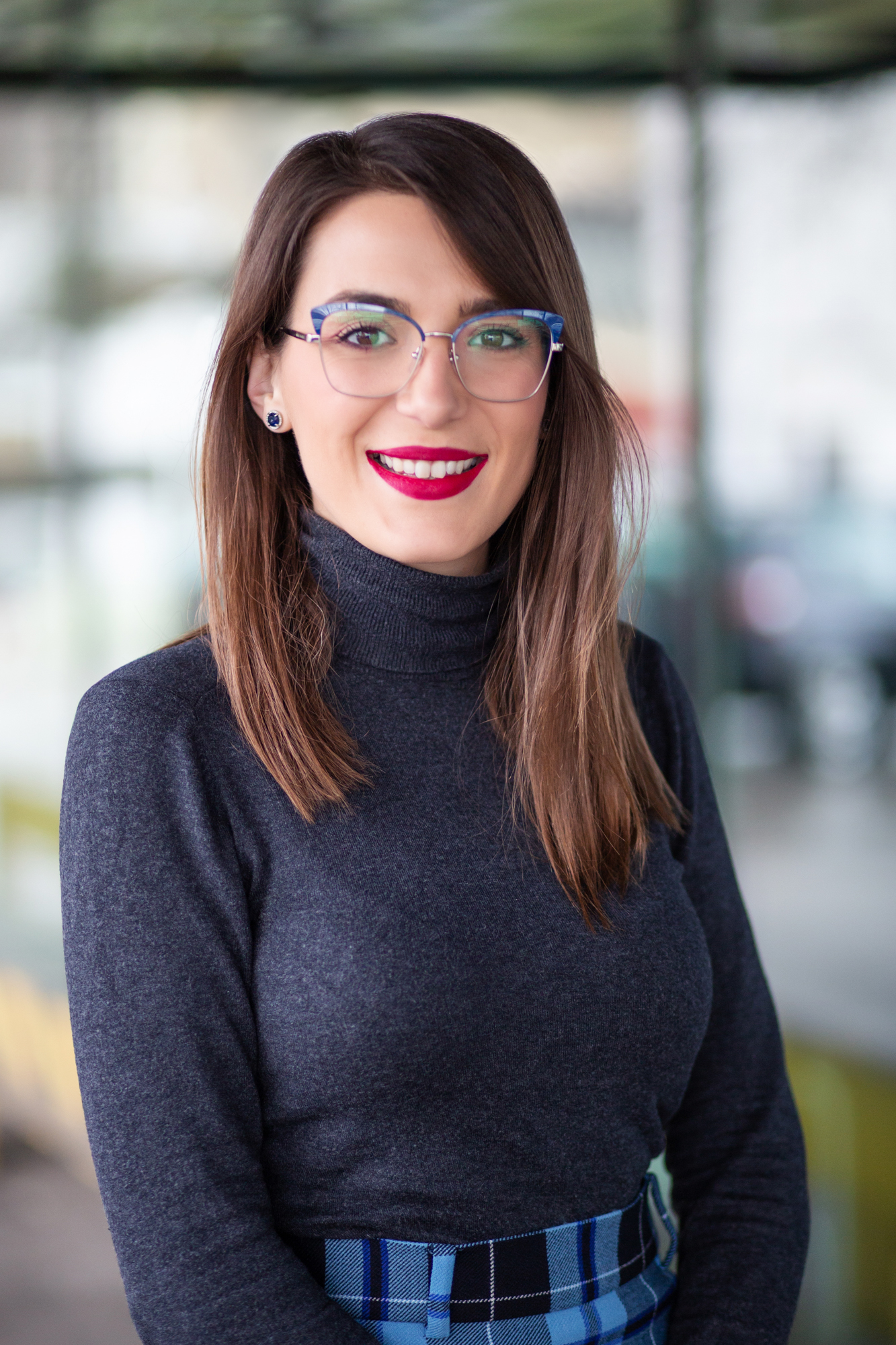
4. LANA PRLIĆ
Lana Prlić, 26, is a young politician from Mostar, a Master of International Finance and business, and an MP in the Parliament of Bosnia and Herzegovina House of Representatives. At 17, she became an activist and volunteer for a political party, and at the age of 21 she was elected the youngest vice-president of a political party in the region. Lana works on issues such as alimony fund, Pedophile Registry, student employment, equalizing parental leave of the adoptive parent... She actively cooperates with the NGO sector.
“If we want change, we must be determined, honest and courageous, because every job has its advantages and disadvantages, good and bad comments. All of us have a chance to break stereotypes and prejudices, it's just a matter of how far we are prepared to go. I myself have encountered many condemnations, comments, prejudices, but I have also met wonderful people with inspirational stories.”
We should all be responsible to the society we live in and if we want any change, Lana thinks, we must not wait for others. "And we must not forget those who succeeded in making the change, as well as those who have at least tried, even if it was the smallest thing on the street."
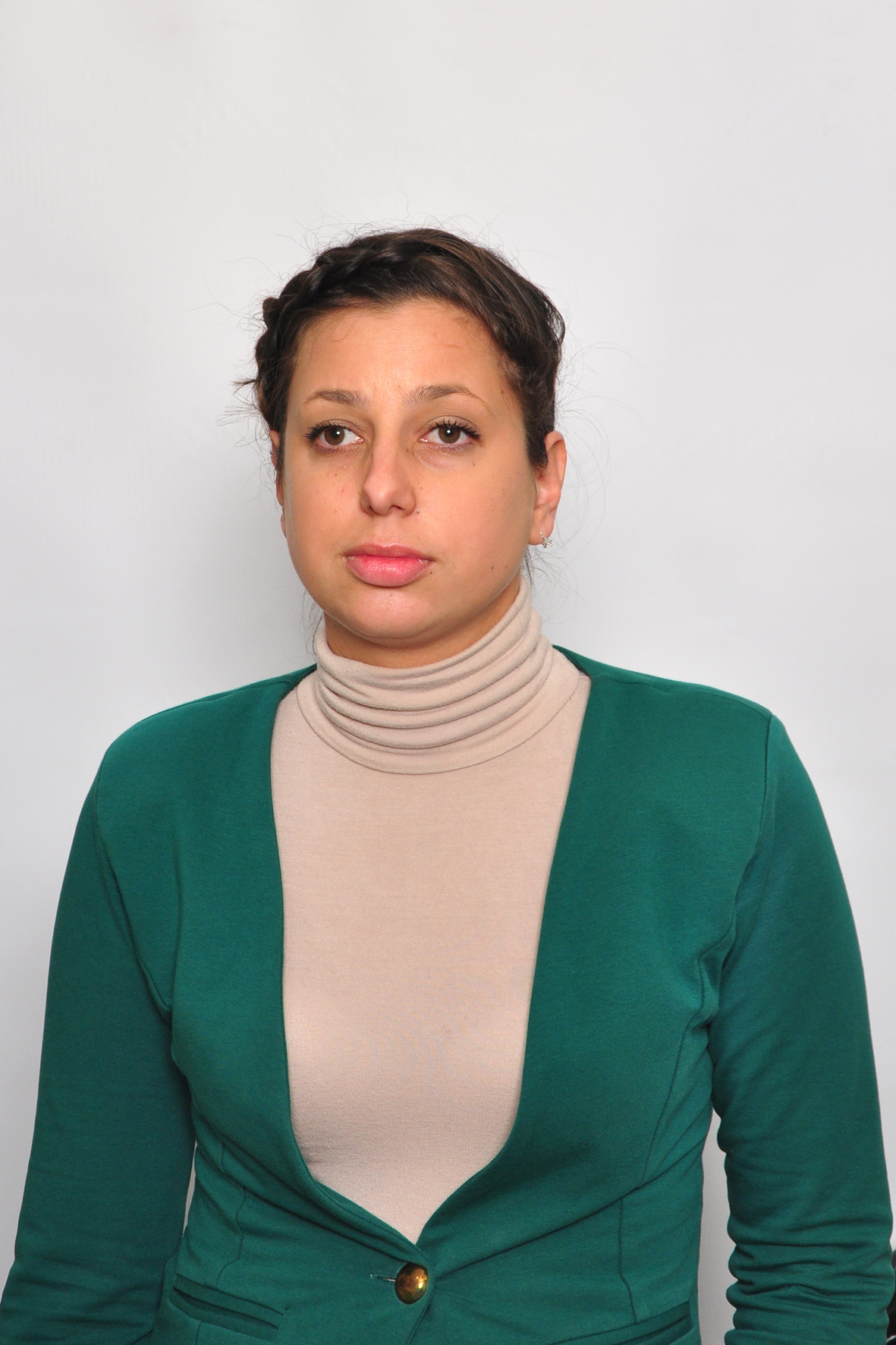
5. VERA BOŠKOVIĆ - ZIH
Lawyer Vera Boskovic - Zih from Doboj has worked for five years in the Ministry of Internal Affairs of Republika Srpska in public relations. Within the framework of non-formal education, she attended several trainings for legal and paramedical assistance providers, alternative reporting on international instruments, gender equality and women's rights, as well as education for advocating for greater enforcement of rights, mainly of persons with disabilities, and conducting media campaigns. She is currently the President of the assembly of the Association of Women with Disabilities "Nika".
“One of the things I live by is that it is enough for us, who are different because of one of our personal characteristics, to just live our lives by overcoming many obstacles and we are already making a change in our environment and in people's consciousness. I have long realized that what we, as individuals or groups of individuals, who are certainly in the minority, can change our attitudes, work smart, and identify the resources in the community that need to be used to bring about change.”
Vera's many activities include the coordination of the Access to Justice for Women with Disabilities project, the development of an analysis of the situation of young people with disabilities, as well as the proposal of part of the text "Youth policies by young people with disabilities" within the Campaign: "Youth with Disabilities for a Better Tomorrow". Vera has produced a “Guide to Women with Disabilities: Gender Equality and Women’s Opportunities through Employment and Self-Employment,” and is committed to advocating for disabled people and continuously provides legal assistance to members of the Disability Association and other citizens. She is one of the authors of the report Gender-based Violence Against Persons with Disabilities, supported by My Rights. She is currently a team leader working on analyzing the accessibility of voting rights for persons with different types of disabilities in Bosnia and Herzegovina within the project "Communities of Different but Equal Citizens".
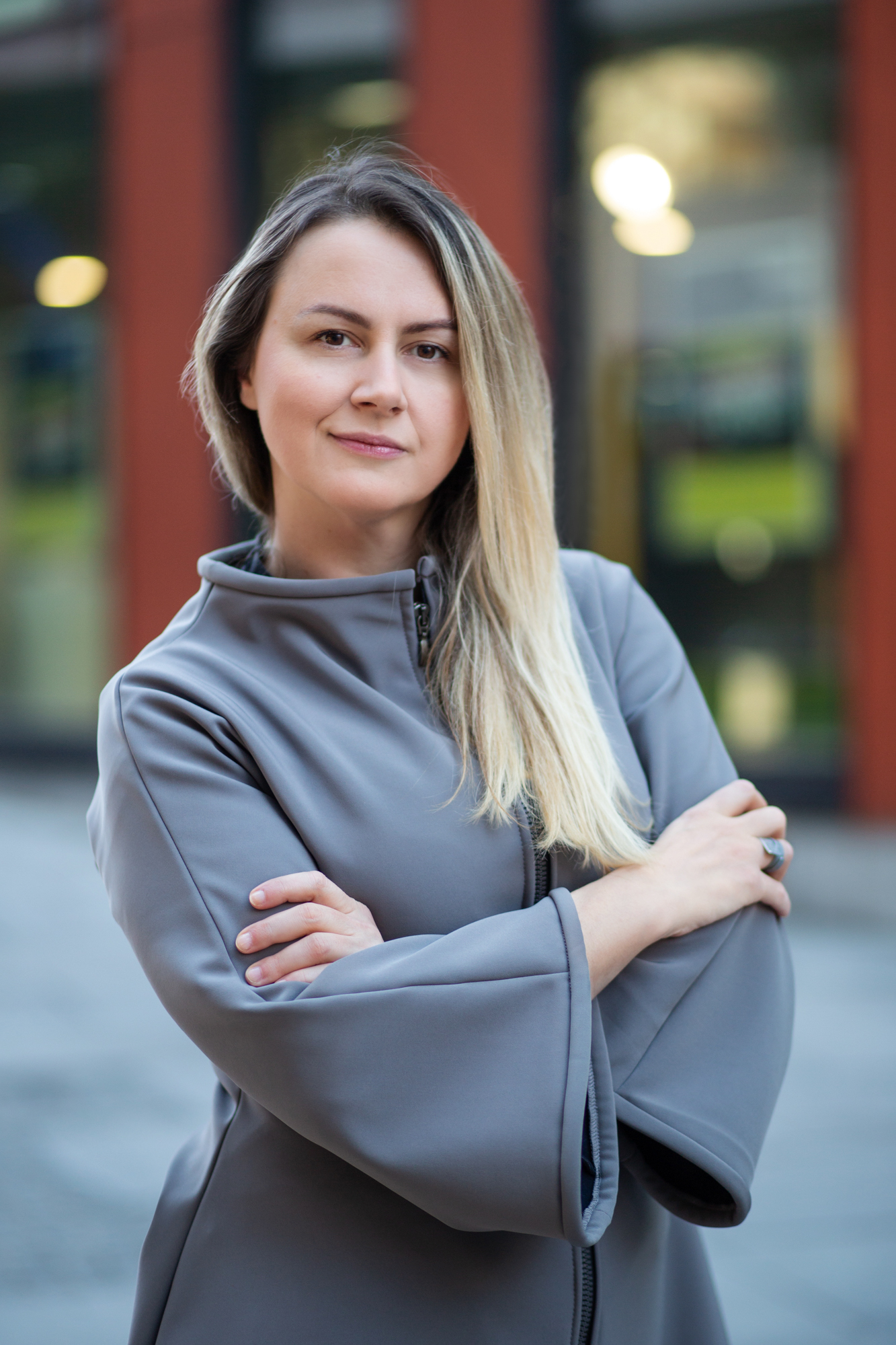
6. VELMA ŠARIĆ
Velma Šaric (40) is a researcher, journalist, peacebuilding expert and human rights defender from Sarajevo. She has over 15 years of experience and is the founder and president of the Post-Conflict Research Center, the founder and editor-in-chief of Balkan Discourse, and project manager for Bosnia and Herzegovina of the WARM Foundation.
“We are implementing programs and projects related to educating young people about the need for peacekeeping. We are active in the fields of human rights, transitional justice and post-conflict research. One of the program's goals is to support women victims of the war through educational campaigns on the importance of combating and preventing sexual violence during the conflict."
Velma graduated in Political Science in Sarajevo, spent five years as a researcher at the Institute for Research on Crimes against Humanity and International Law in Sarajevo, focusing on investigating crimes of genocide and other mass crimes. As a journalist at the Institute for War and Peace Reporting (IWPR) in London and The Hague, Velma has been reporting on war crimes trials for eight years and investigating transitional justice processes in the former Yugoslavia. In addition, she spent three years working as a reporter for the Balkan Investigative Network and at the Association of Court Reporters of Bosnia and Herzegovina. As a researcher and producer, she has worked on numerous publications and films on the 1992-1995 conflict in Bosnia and Herzegovina. She has participated in the Vital Voices Global Ambassadors Program and is currently the only Bosnian to be part of the VV100 - a group of the 100 Most Inspirational Visionaries within the Vital Voices Global Leadership Network. Recently, the Center for Peace Studies of Sri Lanka selected the PCRC and Velma as Peace Ambassadors. Velma is the first and only person from Bosnia and Herzegovina and the Western Balkans to be selected for this honorary award. Velma is still fueled by the words spoken by Hilary Clinton at the 1995 Beijing Women's Conference. "Human rights are women's rights and women's rights are human rights. Now and forever. "
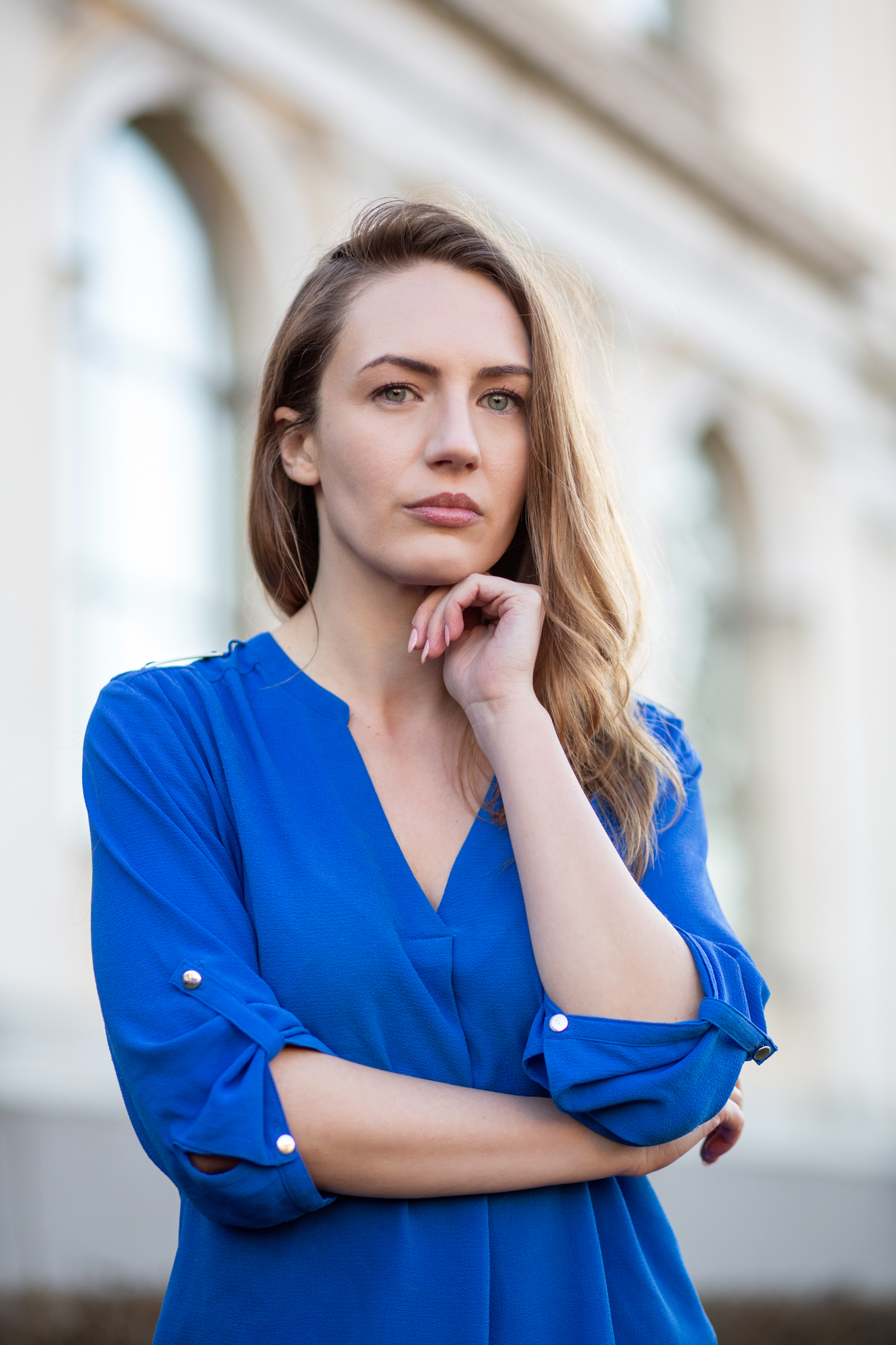
7. JELENA KALINIĆ
Jelena Kalinić, 37, from Sarajevo, is a journalist who writes about science and technology. Jelena completed her studies in biology, Russian language and literature and earned a master's degree in world literature and film. She has been promoting science for years, with a particular focus on women in science and the scientific facts about vaccines, through texts written on two blogs by Vakcine.ba and Quantum of Science, and through video animations, and is also a science journalist for Voice of America. Her areas of expertise are natural sciences, humanities, technology, culture, advocacy in science, technology, culture and education, project management and coordination, video production-photography, science reporting, journalism and reportage, women's science promotion, public relations, communication, knowledge of bh. education, health and science, campaign management and coordination, social media, scientific diplomacy, strategic planning, risk analysis. She is a conscientious supporter of vaccination advocacy, and says that the media needs to dedicate more space to the topic every year and give the floor to the profession. About her work, Jelena says:
“Activism gives hope that something can be improved, and some negative phenomena can be reduced, pointed out and brought to light. We live in a complex world congested with information and misinformation and different activism work, with different focus of action are superhuman attempts to direct society into a more humane future...”
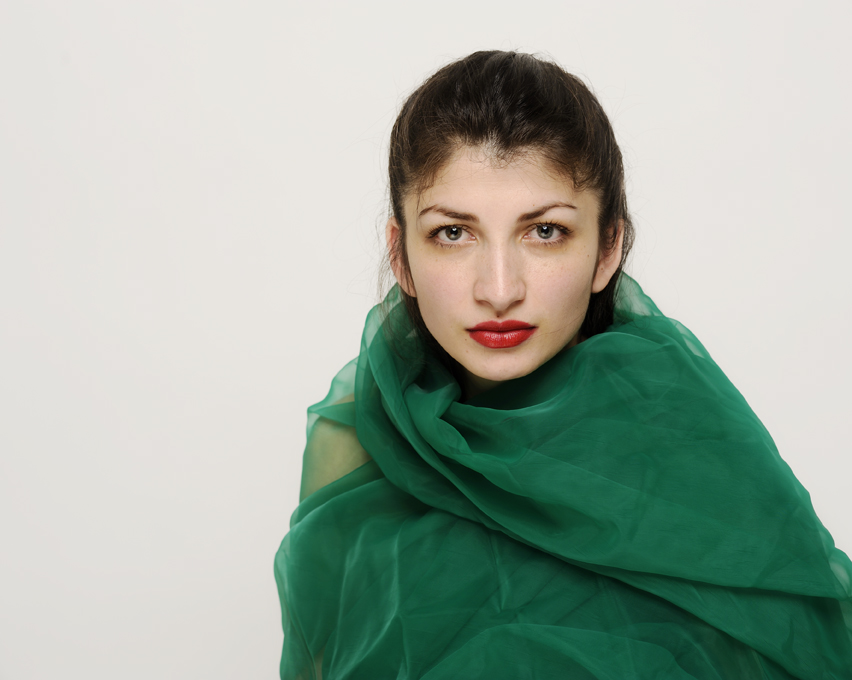
8. SELMA SELMAN
Selma Selman, 29, is a visual artist from Bihać of Roma descent who graduated from the Academy of Fine Arts in Banja Luka and got her master's degree from Syracuse University. She currently lives between New York, Washington, Bihać and Berlin. “Attending school and being seen as 'different' was an unpleasant experience, but at a very early age I learned to respect and accept myself. Roma children in school go through awkward situations and find it difficult to make friendships because of taught discrimination. I say this from personal experience, because school was not as fun for me as it should be for every child, in addition to learning.”
Her life experience has inspired her to use art as a tool to combat discrimination against marginalized people, especially women and children. “Sometimes my Roma identity is a topic I work on and sometimes it is a means by which I act on larger social issues. I believe that art is powerful enough to affect people's lives."
Selma is passionate about empowering girls and women in the Roma population, fighting the early and child marriages, and has put it into practice through the Get the Heck to School! project. "The Roma started marrying their children very early in order to protect girls from rape. It is not much of a protection because the woman still becomes a victim of manipulation and an object without the right to defense. Women's rights are being violated worldwide. All little girls should be taught that they should fight for their rights as a woman from early age. Instead, we are taught that we are less valuable and that we should marry rich men."
"Through the 'Get the Heck to School!' project, I want every girl who receives a scholarship to learn how to get away from stereotypes like this. And education is a path of success that will help them become independent."
Selma initially wants to help the girls in her native Bihać through the Get the Heck to School! project, and later throughout Bosnia and Herzegovina or, as she says, to all the girls who live on the sidelines. “I hope that I will be able to maintain this pace and that society will support me in this because it is an investment in the future and a human right for every child. It's the right to education, women's right and freedom!”
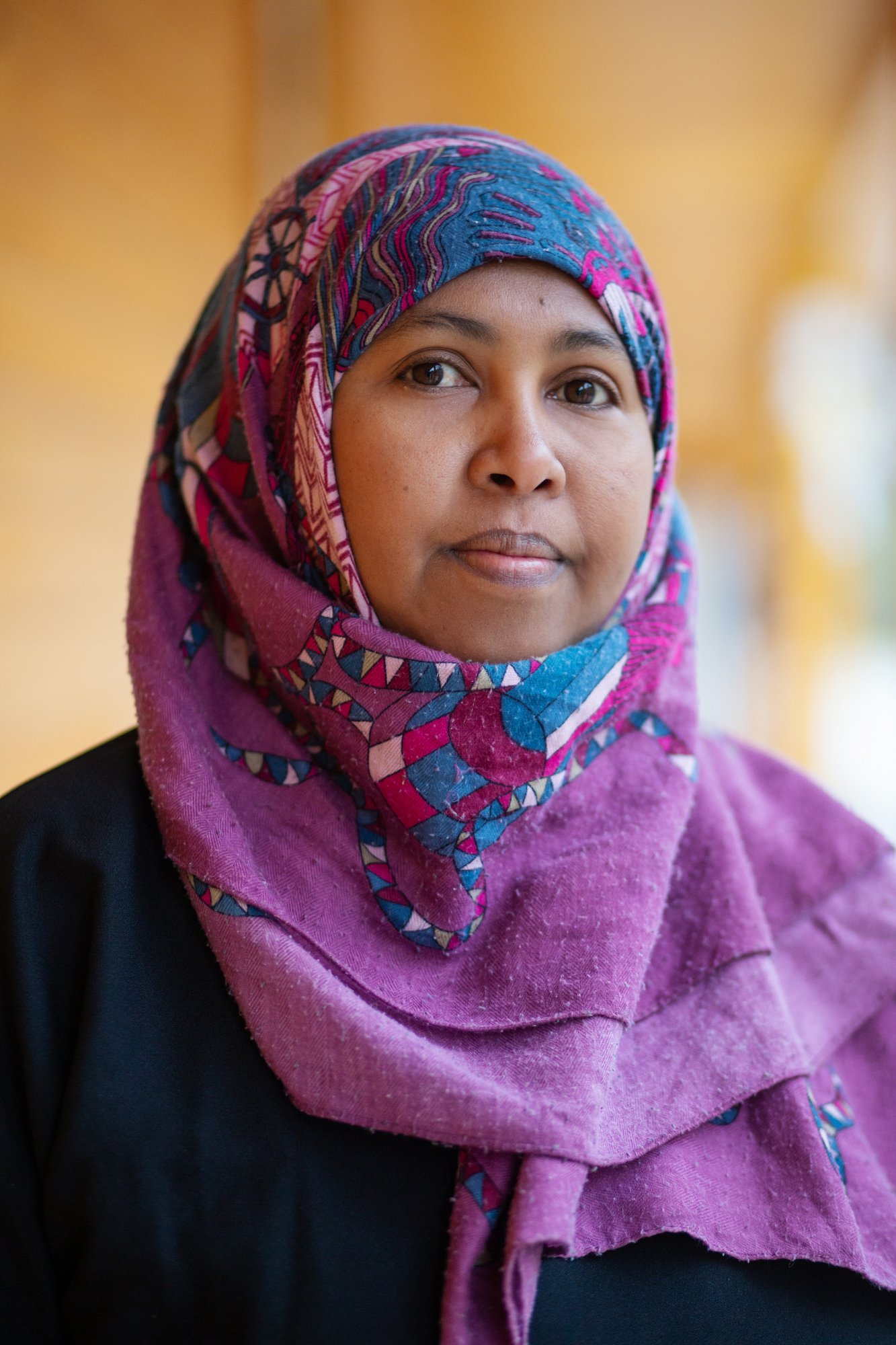
9. NIMA MOHAMMED
Nima is 37 years old, a mother of four and is now housed in the Temporary Reception Center in Hadzici, in the former Usivak Barracks. Nima left Somalia, a country plagued by violence and the consequent humanitarian crisis, two years ago and arrived in Sarajevo seven months ago, along with her children. "There are a lot of things going on in Somalia, an increasing escalation of violence. I wanted to save my children. I arrived here via Turkey, Greece, Albania and Serbia. My husband who stayed in Somalia, is seriously ill, he has diabetes. My kids ask me about him every day, and I tell them that we will be together soon... I hope we will arrive somewhere safe and then he will also be able to join us. My plan is to go further, through Croatia, to any country that will accept us. My main goal is to give my children a better life. I have two daughters and two sons of 16, 14, 8 and 4 years. I was afraid as we traveled through the forests at night, what if they get lost in the dark... How do you hold your four children by the hand so you don't lose them?" Nima first traveled with her children within the country, taking them away from from conflict and violence, and then she decided to move on towards a better future. Now she is in Bosnia and Herzegovina. She is a member of the Council of the Center for Migrant Accommodation and a representative of women staying in this reception center. She actively participates in meetings and discussions. Despite her own difficult situation, she strives to help other women and their families. “I work as a translator at a camp for all those who do not speak English. Families tell me what they need and I pass it on."
"It's not easy for any of us on this transit route, but it's a lot more difficult for women. Still, we have to be strong. I am, because of my children. I dream that they live in a safe country, first and foremost. If there is no security, there is nothing else. And I want them to get a good education. To be happy children. I know I'll make it. I am determined in that.”


